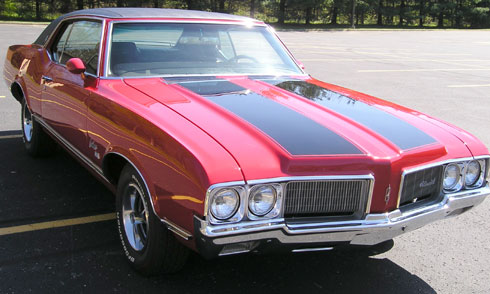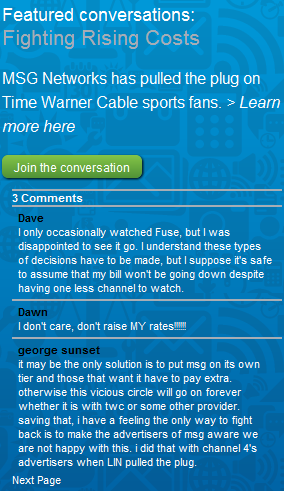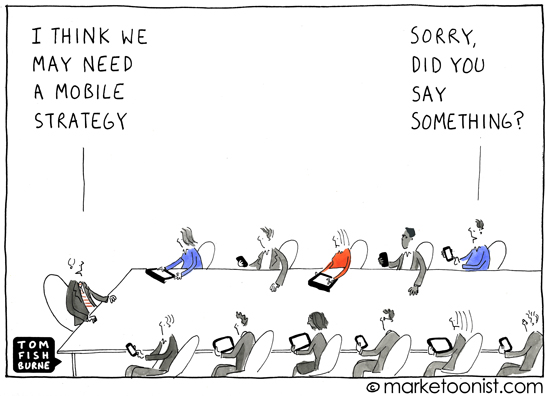Will Facebook Kill the Car?
When we think about disruptive technologies over the years, whether it is electrical power, fast and safe air travel, or even more modern inventions like personal computers or smartphones, we often assess and value these inventions in the context of what prior tools or processes they have impacted. Widespread availability of electrical power replaced steam power in more modern factories, air travel transformed commerce and leisure activities while getting most of us off of transcontinental trains, and each successive iteration or improvement in computer and smartphone technology moves the functionality and capability needle just a little bit further than last year's device. Sure, every so often a new breakthrough device like the iPad comes along that while not really having a natural predecessor, is mostly used to do the same types of things, (read news, send email, watch movies), that were done on other, existing devices, (primarily laptops). I'll bet even the most ardent iPad users only spend ten or twenty percent of their time actually doing something that is only made possible by the new technology alone. Cutlass
Cutlass
Truly transformative and disruptive technologies do more than just offer a better version of an older tool or allow us to do the same things we were already doing before in a new, more efficient, or more powerful manner. Transformations allow us to create entirely new things, define new categories, and most importantly - change the way we lead our lives in ways that have nothing at all, (at least on the surface), to do with the technology itself.
I was thinking about this while reading the following piece from the BBC - 'Why are US teenagers driving less?'. It turns out American teenagers are driving less than their predecessors, and the article offers some interesting speculation on why that may be the case. From the BBC piece:
Recent research suggests many young Americans prefer to spend their money and time chatting to their friends online, as opposed to the more traditional pastime of cruising around in cars.
Ok, so maybe not that transformative or disruptive. Kids like to text and Facebook. Move along, nothing to see here, right?
Here's more from the BBC:
In a survey to be published later this year by Gartner, 46% of 18 to 24-year-olds said they would choose internet access over owning their own car. The figure is 15% among the baby boom generation, the people that grew up in the 1950s and 60s - seen as the golden age of American motoring.
Now that is indeed more interesting, and telling. The internet, and by implication the social connections and activities the internet empowers, (mostly via Facebook), is the gateway to freedom, mobility, coolness - all the things that the car used to represent to the teenager or young adult. A car can only take me, and maybe a couple of friends somewhere. The open web can take me anywhere. But isn't that a kind of sad, lonely tradeoff? Give up a car for Facebook? Isn't that anti-social?
Well let's look at one example of the motivations behind, well, leaving the car behind from Wally Neil, a 25-year-old quoted in the piece:
But it was a decision made easier by the fact that he could speak to his friends online and play games with them over the internet so did not feel he was missing out.
"We were all pretty closely connected, even before Facebook.
"So we were not driving to our friends' houses, there was the gaming network and all that. We were putting the car on the back burner.
"There is a lot to be said for the video game killing the need for a car for a lot of kids."
Really interesting, and I will bet a view on networking, connection, and even technology that most of us don't think about too often. This isn't 'gamification' as it is being tossed around in the HR Technology space fast and furious right now, but rather the social, collaborative, and disruptive power of social gaming to change a myriad of offline and seemingly unrelated behaviors. No Dad, I don't need to borrow the keys to the '94 Cutlass, we are going to play World of Warcraft this weekend.
So the statistics say that teen driving is down in the US, and certainly gas prices and limited job opportunities have something to do with that, but looking at the data, (and the stories), a little deeper suggests that there is more to the story than a simple economic argument. If indeed a generation, the next generation of the workforce, has a set of radically different attitudes towards socializing, mobility, and connecting, then it is something we should be aware of and ready for.
What do you think? Can Facebook really kill the car? Are your kids or colleagues exhibiting some of these same attitudes?

 Steve
Steve




